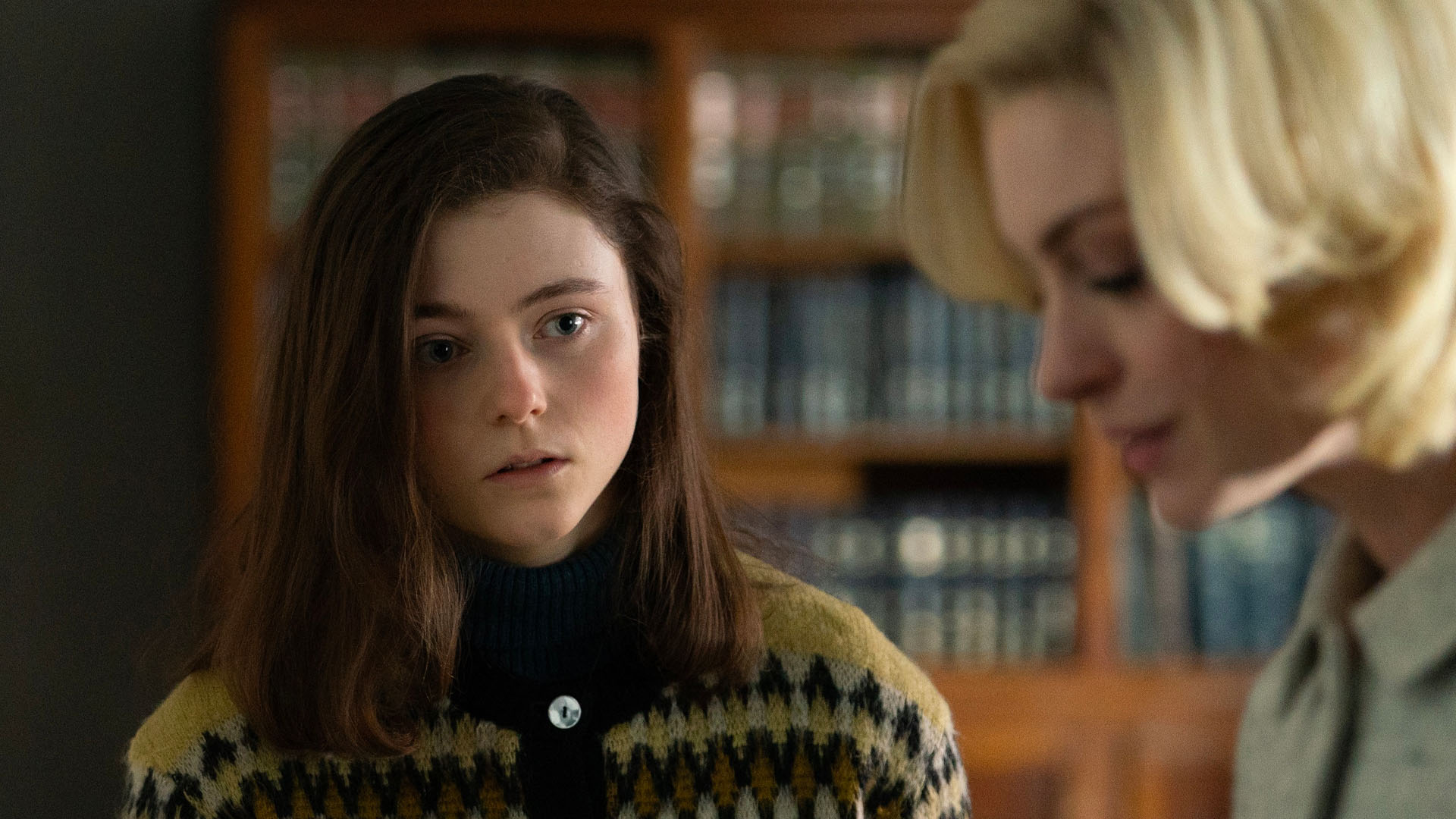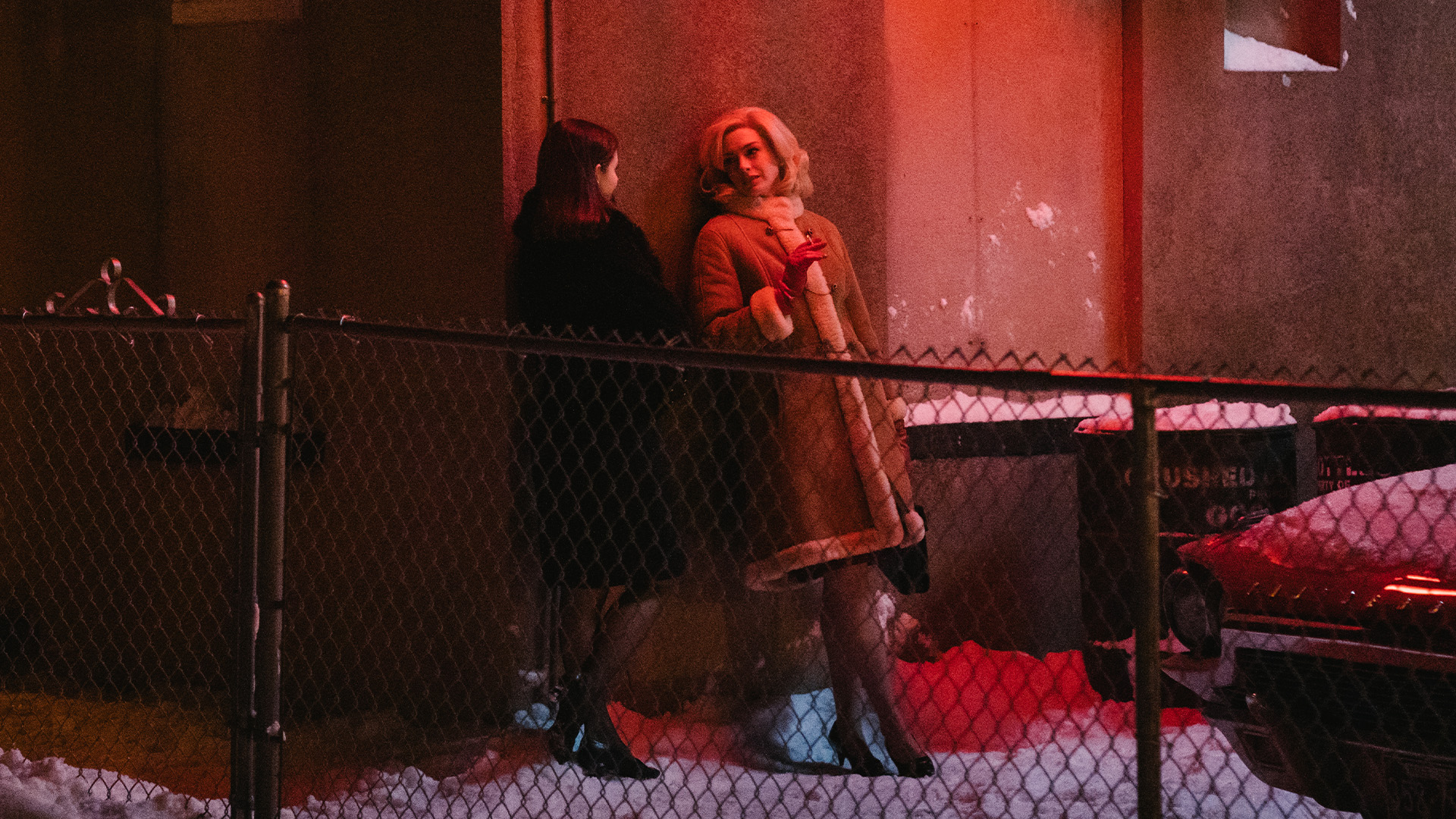Ottessa Moshfegh adaptation Eileen is scintillating, a better film than book

Thomasin McKenzie stars opposite Anne Hathaway in this adaptation of Ottessa Moshfegh’s novel, a drama centred around a parasitic relationship. McKenzie is perfectly cast opposite Hathaway, says Lillian Crawford, their relationship both sapphic and sinister.
Women’s interiority fascinates both Ottessa Moshfegh and William Oldroyd. Moshfegh is best known for her 2018 novel My Year of Rest and Relaxation in which the unnamed narrator’s stream of consciousness pours out the angst and anxieties of a beautiful artsy woman against the backdrop of 9/11. Oldroyd made a name for himself as a director with his 2016 adaptation of Nikolai Leskov’s Lady Macbeth of the Mtsensk District, following a young woman stuck in a loveless marriage. They are a cinematic match made in Heaven.
Few other directors would be better suited to direct the adaptation of Moshfegh’s 2015 novel Eileen, the story of a drab young woman and her endless fantasising in 1960s Boston. Moshfegh has written the screenplay herself along with her husband, Luke Goebel, which allows the novel to be translated faithfully, albeit with certain corrections made with authorial maturation. Eileen works better as a film than it does as a book—where Eileen’s daydreaming is exhausting on the page, it is alarmingly rendered as unreliable objectivity on screen, and some of Moshfegh’s laboured imagery benefits from being seen rather than described.
The artistic quality of Moshfegh’s vision is brought out beautifully by cinematographer Ari Wegner, who in addition to Oldroyd’s Lady Macbeth has developed an extraordinary ability to shoot landscapes from Jane Campion’s The Power of the Dog (2021) to Sebastián Lelio’s The Wonder (2022). Shooting to film stock, in Eileen Wegner masters the art of capturing snow, which can easily wash out a mise-en-scène but here allows her to draw out breathtaking colour contrasts.
The bleak midwinter of Massachusetts mirrors Eileen’s own frosty demeanour—a gauche, unlikeable 24-year-old who does secretarial work at a local facility for young offenders. Thomasin McKenzie is perfectly cast, giving little personality away with her blank expression as she indulges in masturbatory projections behind her desk and in her car. Then onto the plain canvas pops crimson in the form of Rebecca, a psychiatrist played by Anne Hathaway who rocks up to the facility with rouge, lipstick, and coiffed blonde hair. She is everything that Eileen isn’t, and her immediate desire for and to be Rebecca is palpable.

The crux of Eileen’s effectiveness lies in this parasitic relationship. We gaze with Eileen upon Rebecca’s lips as they wrap around crisp white cigarettes, and her elegantly gloved fingers caressing the neck of a martini glass. We are lured in as she is, just like Therese in Todd Haynes’s Carol (2015) and Rose in Josephine Decker’s Shirley (2020). But unlike those films, Eileen is not so easily classified as a lesbian film—the tension is undoubtedly sapphic, but there is something more sinister at play in Moshfegh’s script. It is not simply the case that Eileen wishes to be or sleep with Rebecca, but there’s the constant thrum that Eileen might be capable of killing her.
It is the darker, seedier aspect of Eileen that elevates it beyond the glamour of the surface. Richard Reed Parry’s luscious jazz score keeps time as Eileen moves between her work and home personae, which eventually blur into someone entirely new. McKenzie not only starts to develop Hathaway’s mannerisms, but also those of Shea Whigham, who brilliantly plays Eileen’s drunken father. Their dualogue is tense, trapped in a claustrophobic stand-off that constantly feels fit to burst. With the film tightly clipped to 98 minutes, it’s a scintillating experience.




















